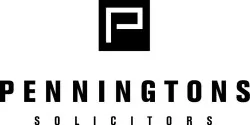In two recent cases before the High Court, Arnold J has referred the following matters to the European Court of Justice (ECJ) for guidance.
Liability of online information service providers (ISPs) for trade mark infringement by users.
The High Court has ruled that eBay was not jointly liable for trade mark infringement with several individual defendants who placed counterfeit goods for sale on the auction site. eBay claimed the benefit of the defences afforded to ISPs under Article 14 and Article 15 of the E-Commerce Directive (2000/31/EC), on the basis that it acted as a mere host of information (Article 14), and was under no obligation to monitor the information it transmitted or stored or to investigate any circumstances indicating illegal activity (Article 15). The judge commented that "eBay could and should do more to restrain future infringements and deal with the problem of trade mark infringement", but it was under "no legal duty to prevent infringement".
Judge Arnold also referred the following questions to the ECJ for guidance on the basis that they are "unclear": (1) whether eBay's own unauthorised use of L'Oréal's trade marks as sponsored links to listings for infringing goods meant that eBay was primarily liable for trade mark infringement; (2) whether eBay should be entitled to a defence under Article 14 and Article 15; and (3) whether the court should grant an injunction against eBay under Article 11 of the Directive on the Enforcement of Intellectual Property Rights (2004/48/EC), since eBay's services were being used by the defendants to infringe L'Oréal's intellectual property rights.
Since there have been mixed decisions on these points in various jurisdictions in the EU (for example, in France, eBay was ordered to pay LVMH damages; L'Oreal succeeded against eBay in Germany; and Tiffany failed to establish a trade mark infringement case against eBay in the United States), the guidance that this referral will bring will be much welcomed. However, until that time, there will continue to be uncertainty in this area.
L'Oréal SA and others v eBay International AG and others [2009] EWHC 1094 (Ch), 22 May 2009
Is keyword advertising trade mark infringement?
The High Court has decided to adjourn trade mark infringement proceedings taken by Interflora against M&S, arising from the purchase by M&S of variations of Interflora's brand name as sponsored links under the Google AdWords scheme. The court has also refused to grant an interim injunction to prevent M&S from continuing to bid for Interflora signs as keywords.
M&S denies that its actions were either: (1) use in the course of trade, of a sign, identical to Interflora's trade marks and the goods and services for which those marks were registered (contrary to Article 9(1)(a) of the Community Trade Mark Regulations (40/94/EEC) (CTMRs) and Section 10(1) of the Trade Marks Act 1994 (TMA)); or (2) use in the course of trade, of a sign, identical with, or similar to Interflora's trade marks for goods or services dissimilar to those for which Interflora's marks are registered but is being used without due course, takes unfair advantage of, or is detrimental to, the distinctive character or the repute of the trade mark contrary to Article 9(1)(c) CTMRs and Section 10(3) TMA. Furthermore, M&S denies that it should be jointly liable for infringing use by Google of its trade marks within search bars on the search results pages that contained the sponsored link of M&S (Google is not a party to these proceedings and since May 2008, Google's AdWords policy permits the unrestricted use of registered trade marks as key words).
Arnold J has decided to refer the case to the ECJ for a preliminary ruling on the basis that a number of similar questions were already before the ECJ in other pending references (including the L'Oréal decision above).
The questions to be referred to the ECJ in this case are not yet settled (the judge has asked the parties to consider his decision in the L'Oréal case). However, it is clear that the extent of the matters which will need to be addressed by the ECJ is significantly broader. For example, none of the pending references involve a claim against an advertiser (rather than an ISP), nor do they consider the presentation of keywords in the search bars and in the summary of the search results in addition to sponsored links or the risk of dilution of a brand owner's trade marks. The ECJ is also considering a number of other referred questions on keyword advertising and sponsored links, from courts in Germany, France and the Netherlands. It is hoped that these referrals will result in much more certainty on how to approach this important area.
Interflora, Inc., Interflora British Unit v Marks and Spencer Plc, Flowers Direct Online Limited [2009] EWHC 1095 (Ch) 22nd May 2009
Comment
The comments of Arnold J concerning eBay in the L'Oréal case, as well as his apparent intention to adopt a consistent approach in the Interflora case, may be seen as a positive step forward in providing much needed clarity and certainty in this complex area of law (hopefully in favour of trade mark owners). Either way, it is likely that once the ECJ has provided its guidance, trade mark related issues surrounding keyword advertising will be even more frequently considered by the courts. Therefore, companies who use this form of advertising for their goods and services are recommended to undertake trade mark clearance searches prior to purchasing key words from an ISP, Indeed, ISPs may also wish to impose more restrictive policies on keyword advertising in order to keep their exposure to a minimum.
The content of this article is intended to provide a general guide to the subject matter. Specialist advice should be sought about your specific circumstances.


